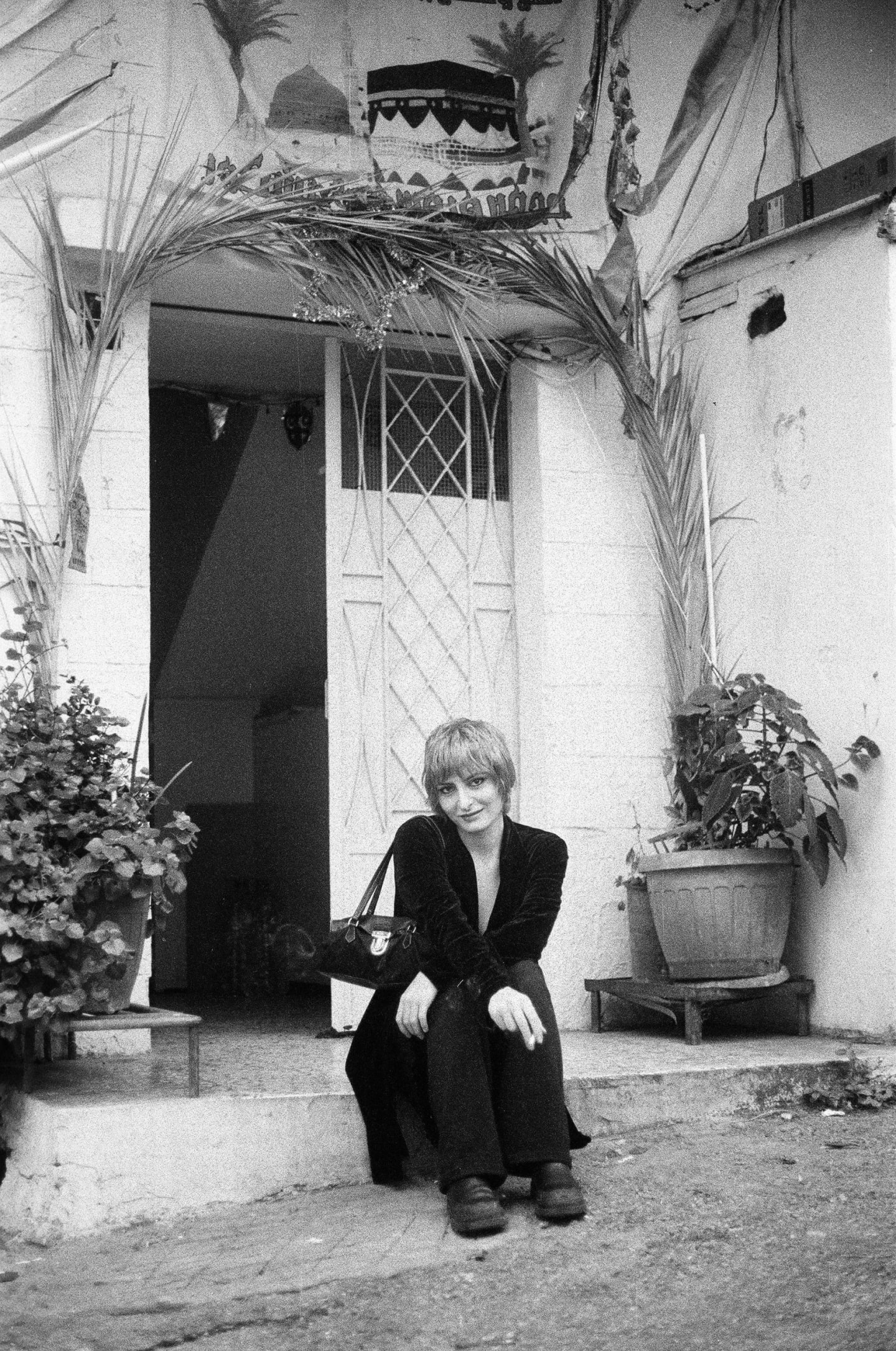
A Revolution During Uncertain Times: The Music Workers Alliance in NYC Fights Against Economic Injustice
With supporters like Bergsonist, Yaeji, Umfang, and Laurie Anderson, this movement aims to improve the industry status quo.
May 1st is International Workers’ Day, a day to commemorate workers of the world, and no better time to reckon with the current working conditions of the music industry. Music proves, again and again, to be an indispensable lifeline during social distancing, but the nature of the pandemic has threatened the livelihood of entire music communities around the world.
Performers and DJs are altogether out of work, and, since their profession depends on public assembly, they’re now scrambling to combat significant financial losses. To make matters worse, some speculate that it may take over a year (maybe even several) to lift gathering bans for clubs. While the lockdown may be temporary, its impact is long-lasting, and we still don’t have any solid grasp on what the future holds.
That’s why Music Workers Alliance, a grassroots organization and movement in New York City, formed in late March during the onset of the United States’ COVID-19 outbreak. So far, the Alliance has been successful in expanding legislative eligibility for unemployment benefits, providing gig workers with immediate relief from the financial burdens they are facing.
Early on, the Alliance was endorsed by trailblazing electronic music composer Laurie Anderson and the iconic “100% Pure Love” house music songstress Crystal Waters, who both helped the movement gain traction. Now, support for the Alliance is growing every day: They’ve been endorsed by major electronic music names like James Hoff, Volvox, Black Madonna, and Deena Abdelwahed. And, just this week, Maria Chavez and Yaeji were added to their list of backers.

The Alliance’s lead organizer Olympia Kazi got involved with New York’s electronic music scene in 2017, when she worked with the NYC Artist Coalition to repeal New York City’s Cabaret Law, an outdated “dancing ban” and a legal hangover from the Prohibition Era that made licensing for smaller grassroots cultural venues around NYC difficult and expensive. Thanks to the Coalition’s efforts, alongside testimonials from members of international DJ collective Discwoman, underground Brooklyn staple Bossanova Civic Club, and New York City’s Boiler Room chapter, the repeal was a success.
Kazi has remained dedicated to improving working conditions, rights, and fair treatment practices for producers and DJs. When the outbreak started, Kazi, alongside a diverse group of music workers, saw this as an opportunity to formalize their group and publicize their efforts for improving the status quo for musicians.
The Alliance’s organizers and backers come from a variety of musical backgrounds, including jazz, electronic, and classical music. Banding together was a deliberate decision, considering they all share the same financial struggles. Right now, it’s essential for DJs and producers to also join in to reclassify rights for gig workers.
I initially came across the Music Workers Alliance from Berlin-based songwriter Zeynab Marwan’s Instagram, who is self-releasing an EP later this year under her moniker Thoom. To learn about why collective action is important for independent artists who promote and release digitally, I asked Marwan about her reasons for endorsing this alliance. “The most important thing workers in [the music] industry can do is to organize,” she says. “That is the only way we can negotiate for our interests and have any power.”
Not only do industry models need to be revised, but the common misconception that artists who pursue music as a profession are doing so at their own risk also needs to change. “This doesn’t have to be the norm,” Marwan suggests, “To have any leverage or say in the industry you work in, you have to organize. Nothing will change otherwise.”

After successfully extending unemployment and medical benefits to gig economy workers in the US, the Music Workers Alliance has now shifted its focus to issues concerning commercial copyright infringement in the digital domain. The Alliance is fed up with the exploitative profit models available online. The organization is working on a local level to change the profit margins for online companies that circulate music. They’re coming together, as their current petition states, to set a precedent against the prevailing “unfair treatment, lack of benefits, contracts and representation,” in the digital realm.
Marc Ribot, an independent musician and one of the core organizing members of the group, has found particular issues in this. He comes from a long history of working with music unions and artist rights coalitions. Ribot was personally affected by the pandemic when his indie rock band’s European tour was canceled, along with their shows into the next year.
“There’s no live work, the only thing left is recorded work,” he tells me over a Zoom call with Kazi and Selwa Abd (who is represented by Discwoman as Bergsonist). “Musicians and DJs are becoming destitute, they can’t afford living costs, and there needs to be more relief,” Kazi says, to which Abd adds, “It’s something that needs to be addressed as a society to create new systems [of support].”
As of now, commercial copyright law dictates how a company can profit off of the content they host on their platforms. Almost half of the music consumed online is from YouTube streams, Ribot explains. The more content people upload to online platforms like YouTube, the more corporations profit from advertising revenue. In their recent petition, the Music Workers Alliance is calling for a legislative exchange with these corporations about setting standard technical measures for digital copyright—meaning that, hopefully, artists are more aware of (and get a share of) any profits being made on their work. This standardization was on the agenda for the Digital Millennium Copyright Act, which was established before Facebook and Youtube existed, but instead, the act produced a safe-harbor clause that protects third-party platforms from prosecution for hosting infringed content online.
https://soundcloud.com/bergsonist/resistance
Abd’s latest EP, ك, belongs to a series of self-released projects that she archives and makes available for purchase on Bandcamp. After its release, however—and without her consent—Abd discovered that someone had uploaded her project to YouTube. For many, copyright infringements like this haven’t been viewed as a problem, but now producers are becoming more aware of how their work is co-opted for profit. Abd wants to confront this issue, telling me, “Live-streaming companies exist because of the DJs and musicians using their platform, why should [we] only have to rely on donations?”
Abd’s body of work takes up the political sphere, she has lovingly called upon collective strength in her music and last October prompted support for Bernie Sanders while promoting her EP. Like many independent artists, Abd sees the advantage in self-releasing on Bandcamp, which has proven to be one of the best models for fans to directly support artists and plans to waive their cut from sales for the second time this year, today.
The exploitative digital models in the music industry have existed long before clubs closed their doors. Meanwhile, as the option to tour disappears, many artists are growing apprehensive about their working rights, the industry’s standards, and even the environmental impact of touring. Discwoman co-founder Emma Burgess-Olson (A.K.A. Umfang) writes in an email, “My job as I knew it wouldn’t return for a long time and at this point, I wouldn’t want it to. There is a practical and emotional aspect to that fact. The problems with living off a global economy dependent on travel had been something I knew was vulnerable and environmentally irresponsible before and is fully exposed now as not sustainable [sic].”
For RIVEN, Burgess-Olson’s EP released last March through her new independent label Thanks For Enlightening Me, she collaborated with artist Erika Ceruzzi and poet and writer Mayra Rodríguez Castro, the latter of whom contributed a text about new beginnings and our responsibility towards shaping them: “Any rupture can be sealed again. Floating pieces attract. Who is left to speak when things split apart, and a world grows anew?”
By loading the content from Soundcloud, you agree to Soundcloud’s privacy policy.
Learn more
An upcoming release by the imprint is scheduled for late June, and Burgess-Olson has a mindful and poignant approach to delivering it. “I have turned to Bandcamp as a positive shift in how the industry can move effectively,” she writes. “They take a small fee from each sale and have been waiving their fee share once a month since the pandemic. This is a small loss for a large company but generates significant income for artists and small labels. This is the kind of compassion I would like to see more of.”
Burgess-Olson’s solidarity with the Music Workers Alliance comes from witnessing the devastating consequences this pandemic has in her community. She says, “A lot of my peers are deeply passionate about their work and don’t consistently make enough money to save beyond their monthly payments. […] we still owe rent and need to pay for food without a solution to work any time in the future and [many] are in a bad place right now [sic].”

The Music Workers Alliance organizers are fervent about their cause. Given the global scale of the music community, their message resonates far beyond New York City’s borders. If the Music Workers Alliance is successful in changing digital copyright legislation within the United States, their efforts could potentially spark a worldwide movement for basic fairness on all online marketplaces.
During an 1856 speech on the unfolding social revolutions, Karl Marx (who inspired the labor and workers’ movement of the Industrial Revolution) asked his assembly, “[…] the atmosphere in which we live, weighs upon everyone with a 20,000 lb. force, do you feel it?” His impassioned rhetoric sowed the seeds for revolution.
Music communities have been so generous and dedicated to shaping our cultural landscapes, yet they are forced to deal with an unparalleled weight of financial vulnerability. Their work is supporting all of us through this difficult time—in exchange for virtually nothing.
Jazmina Figueroa is a writer based in Berlin and is currently completing a master’s in anglophone modernities in literature and culture. Her published work spans topics of arts and culture, politics of technology, and digital media theory. Find her on Twitter @Jazmazzzz.
Published May 01, 2020. Words by Jazmina Figueroa.
